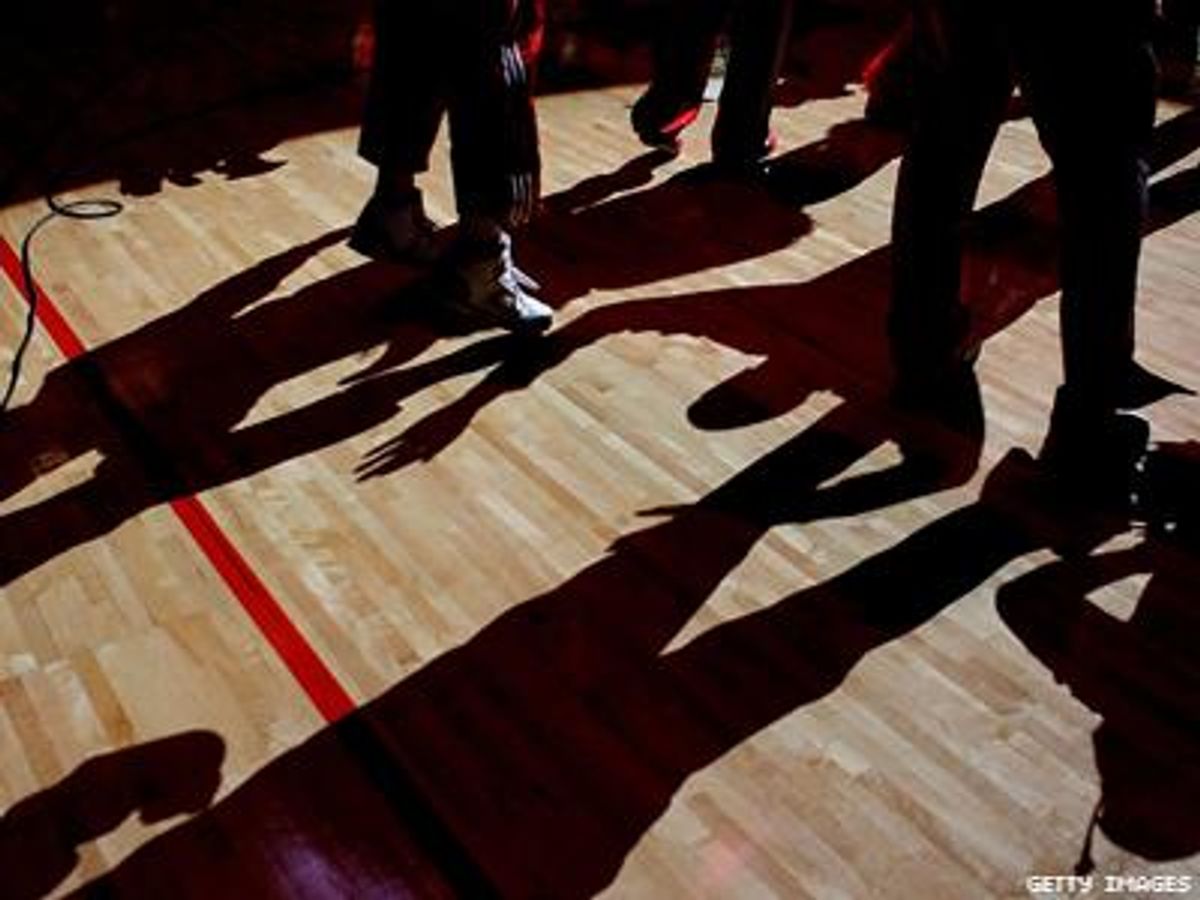Here we are, 66 years to the month since the Brooklyn Dodgers started African-American player Jackie Robinson at first base, and we are witnessing another significant milestone in the evolution of inclusion in professional sports: The coming-out of NBA free agent Jason Collins is a first for not only the NBA but also American professional men's team sports. The impact of the former Washington Wizards number 98's bravery and honesty stands to influence the LGBT community in the sports arena and beyond.
Thanks to Jason Collins, other professional athletes on the fence about publicly coming out will be able to use this media coverage and backlash as a litmus test of sorts to hopefully make the decision to follow Collins's example. Of course there will be negative comments and coverage from the usual uneducated and archaic suspects in the media and religious sector, but given the growing acceptance of LGBT individuals, relationships, and families, in all other facets of daily life we can only hope the same friendly hand of solidarity will be extended to athletes. What will remain to be seen is how Collins's actions will affect those professional athletes just beginning their careers. At 34 years old and after 12 seasons in the game, Collins is in the twilight of his career, making him likely more emotionally evolved and comfortable in his career accomplishments compared to his counterparts in their early 20s who are just starting out.
Would coming out have an effect on a college player's ability to be drafted and treated equally within the management of their team? NFL draft hopeful Alan Gendreau was the perfect example this past week. Although not drafted for this upcoming season, the kicker was up front and honest, no matter the repercussions -- a great example to young athletes everywhere.
Where the real evolution of sports inclusion stands to occur -- and filter up to professional sports -- is in high school and college athletics. As a younger generation grows more accepting of LGBT people and school policies build toward inclusion and acceptance of all students, it can only be assumed that LGBT inclusion in sports will follow. As this domino effect continues to gain momentum and expand to more communities throughout the United States, the norm will likely be for gay students to be on the football, basketball, or baseball team. And the real story will be that there is no story. It will just be what is accepted as normal. A gay star quarterback on the high school team will not be whispered about among parents and faculty, he will not be bullied and humiliated in the locker room, he will just be appreciated for being a great athlete.
Since the majority of the world we live in revolves around the almighty dollar, there is now an entirely new market of endorsement deals to be made and products to be developed that are geared toward gay athletes. I can see it now: the Nike swoosh with a rainbow running through it. While this initially might sound like a negative comment, it would actually be a way to further fast-track assimilation of LGBT individuals into mainstream advertising, product development, and retail and marketing strategies. LGBT people aren't looking to have anything special given to them, just to be treated and represented in mainstream media, policy, and everyday life like our straight allies (and enemies).
Our culture is perched on the edge of making a tangible, important impact that truly matters in providing a new type of role model, not only to young athletes, but to anyone looking for a bit of courage in life, to stand up and be honest about who they are, who they want to be, who they love, or anything they feel shame over.
Within Colllins's deliberation to publicly come out, he no doubt realized that this would propel him to mentor and role model status. There is an entire group of young athletes hiding in the closet at their high schools and colleges, and even on their professional sports teams, who have been waiting for someone to be the pioneer who would lead them to reveal their true authentic selves in all aspects of life. Collins may not even begin to understand the impact his decision will have not only on sports culture but on the lives of so many working to build the courage to be themselves.
ANTHONY ARMSTRONG is the development manager and grant writer for the Center for Drug Free Living Inc., the largest AIDS service organization in central Florida. Armstrong is also a founding board member of the Zebra Coalition, one of the first full continuum of care housing programs for LGBT youth in the United States.













































































